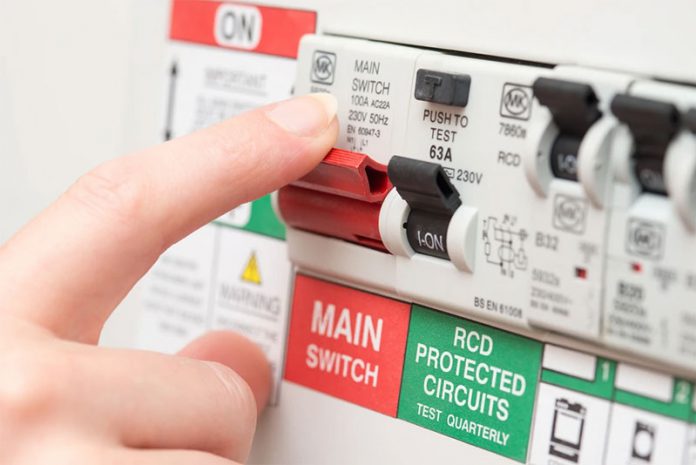Our homes these days are filled with an abundance of electrical appliances, lights, equipment, and other electrical components. All of these require power, so when you experience a tripped circuit breaker, chances are you’ll notice it immediately. There are a number of different things that might be causing your circuit breaker to trip. If this is something that is occurring in your home, you may want to understand why it’s happening in the first place, and how you can take the necessary steps to ensure it won’t happen again. This blog is the ultimate guide for those looking to resolve their circuit breaker issues.
What causes a tripped circuit breaker?
Although a tripped circuit breaker can be an inconvenience, it should also be reassuring, as it’s a sign that your breaker is doing its job. A circuit breaker trips to protect itself from overworking, causing it to overheat and potentially catch on fire. This could lead to extensive damage to your home, and a tripped circuit breaker doesn’t seem so bad in comparison.
Due to the rising demands of power consumption all throughout our lives, it is no surprise that one of the most common causes of a tripped circuit breaker is a circuit overload. If you are using multiple electrical appliances at once, or are using a great deal of power with large air conditioning units, you may cause a circuit overload and trip your circuit breaker.
Another common cause of a tripped circuit breaker is a short circuit. Short circuits occur as a result of the connection between an active wire and a neutral wire, creating a huge amount of current to flow and overload your circuit. If you have faulty appliances or plugs in your home, you could end up having a short circuit and tripping your circuit breaker.
Experiencing a ground fault can also cause your circuit breaker to trip. A ground fault occurs when an active, or hot wire touches the ground wire, which is a grounded section of the junction box or grounded area of an electrical appliance. Commonly, a ground fault is caused by a defective electrical appliance, or faulty device. It is always important to assess the condition of your electrical appliances, to ensure you don’t cause a ground fault.
How you can prevent a circuit breaker from tripping
In many cases, a tripped circuit breaker can be easily prevented. One such prevention method is to unplug all electrical appliances that aren’t in use, as even when they are plugged in or on standby mode, they are still using electricity. This can help you to reduce your overall power consumption, so that you don’t keep tripping your circuit breaker as a result of a circuit overload.
In some cases you may only have a few outlets in your home, requiring you to spread the power load evenly across them, so as to not put unnecessary stress on a particular one. The same method applies to circuits in general, as you should spread your electrical devices across multiple circuits if possible. You should also look to avoid extension cables or large power boards, which can be a burden on your circuit. Look for any sorts of damage to your plugs or outlets, as well as any frayed cords which could be contributing to your circuit breaker tripping.
Another simple method of ensuring you don’t trip your circuit breaker is to have a residential electrician in Perth come to conduct an electrical check of your home. They can also help to rewire any old circuits, so that they can now adequately handle the amount of power that you require within the household. Older electrical components tend to draw more current, increasing the risk of your circuit breaker tripping. It may be beneficial to replace these components as they become old.
We hope that you found this article useful, and can try out some of our tips to help keep your circuit breaker in normal operating condition. If you do keep experiencing a tripped circuit breaker, you should always call a professional electrician in Perth to assess and fix your issues.
















